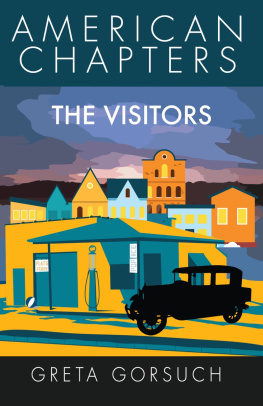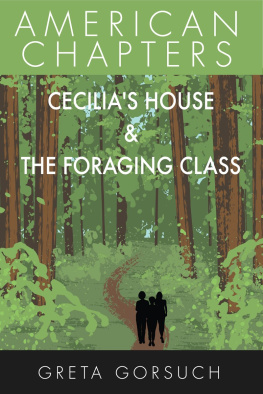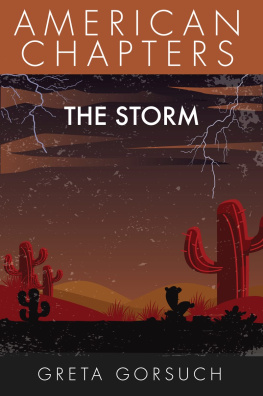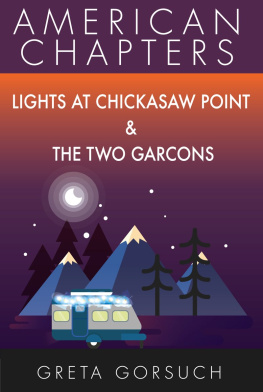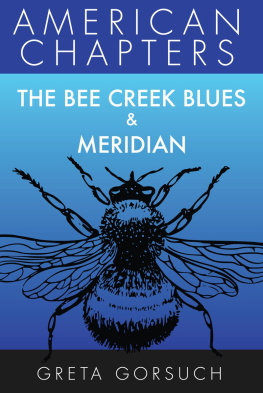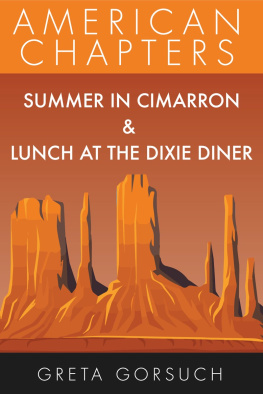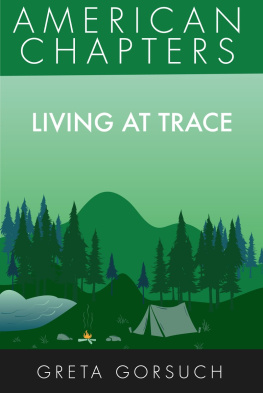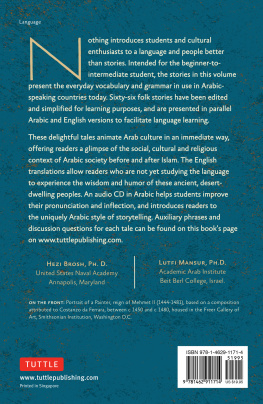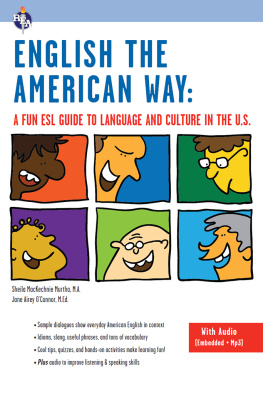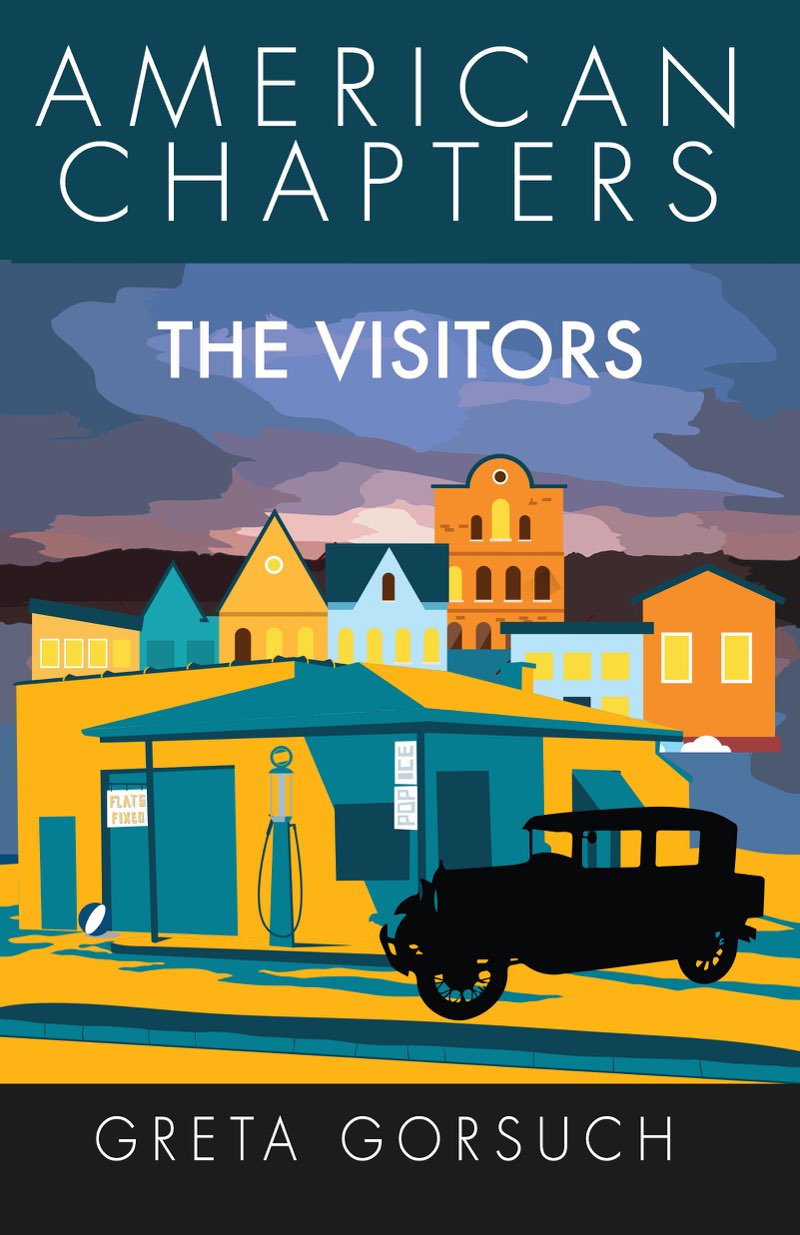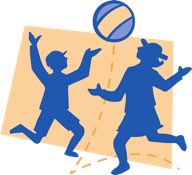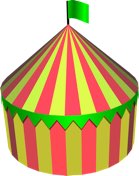The Visitors
American Chapters
Greta Gorsuch
Copyright 2020 by Wayzgoose Press
All rights reserved.
No part of this book may be reproduced in any form or by any electronic or mechanical means, including information storage and retrieval systems, without written permission from the author, except for the use of brief quotations in a book review.
Book Design and Editing by Maggie Sokolik, Wayzgoose Press
Cover Design by DJ Rogers, Book Branders
Contents
Notes on the Use of Two Words in this Story
The Visitors is set in 1933 in Wellington, Texas. As I wrote this story, I came to a difficult decision. In order to write about all the people who lived in Wellington, I would have to use two words, colored and Negro.
Colored was a term used by many Americans before the 1850s until the early 1960s. The word colored was used to refer to African Americans. In other words, people whose ancestors came from Africa. The term Negro was used by many Americans from the 17th century until the early 1970s. Again, the term meant African Americans. In the 1960s and 1970s, many social changes took place in the United States that caused many Americans to rethink these words. Both words fell out of use.
These words are no longer used in polite conversation, and have no place in modern society, nor in modern English use. Both terms are hurtful, and should never be used. To understand more about why these terms are hurtful, please see my historical notes at the end of this story.
I think it all started with that blue ball. I had a lot of arguments with my friend Jilly about this.
Jilly told me, Our troubles didnt start with a blue ball. The only whos seen it is you.
Bill Healy saw it, I said. He saw it way on the south side of town. Mabel Entringer saw it, too. But she saw it outside the colored school. Thats on the north side of town, near us.
Perfect, Jilly said. An old drunk and some colored woman.
I had no answer to that. I liked Bill. I liked Mabel, too. I had seen the ball a dozen times in just one week. It was just a medium-sized ball. It was bigger than a baseball but a little smaller than a basketball. A child on a beach might play with a blue ball like that. You saw that color, and it meant h-o-l-i-d-a-y. I dont know where I got the idea. Id never seen a beach. Id never seen an ocean. Wellington was far away from anything like that. In 1933, we had dust and sand. We had lots of wind, but no beaches, and no ocean. There was no water, really. It hadnt rained since March. Now it was June, and getting hot.
The first time I saw that bouncing blue ball, I was on my way to school. My little brother James was late. He had a spelling test he didnt want to take. He could not spell at all. Mother told me I had to wait for him. I stood at our front gate and stepped out into the dirt road.
Caitlin! Mother called. I told you to wait! I stepped back inside the gate. I waited. Onetwothreefourfive Then I stepped back out onto the road again. Caitlin! Mother called out. I couldnt see her. Where was she? How did she do that? How could she even see me? Back I went inside the gate. Onetwo Then back outside the gate. I wanted to get going.
The third or fourth time this happened, I saw the blue ball bounce right past me. Where did it come from? I was so surprised that I didnt hear Mother call. I leaned over to see better. A blue rubber ball, impossible to miss, was bouncing down the road to school. A good strong wind was behind it. It was moving fast. It bounced high, and then zipped along the red dirt road. Could I catch it? I liked that blue color. Like the big blue ball on a Quaker Oats box. I was about to run after it when I felt a hand on my shoulder.
Caitlin? Mother said.
Aaah! I said, surprised. Mother laughed.
Uh huh, she said.
How do you do that? I said. My mother had the quietest walk of anyone I knew. Is there anyone you cant sneak up on?
No, she said. I believed her.
She handed me a brown bag. It was James lunch. James isnt going to school. Why dont you give this to Mabel Entringer if you see her? Its a good lunch. Someone at her school might want it. Its on your way.
Oh, all right, I said. Mother kissed me on the cheek. She went through the gate and watched me leave for school. I wanted to find that blue ball. It couldnt have gotten far. But there wasnt anything to stop it. Wellington, Texas, was as flat as a pancake. That ball could bounce along forever.
That was the first time I saw the blue ball. I saw it again and again for another week.
It just sat there in the road, or in front of the colored school, or at a gas station. The wind would blow, and it would shiver a little, like it was cold. Then off it bounced. Every time I saw it, I thought about catching it, but I didnt try. It got so I enjoyed seeing it. I never knew where it would show up.
I came to think of that week in June, 1933 as a circus. Why a circus? Well, you might think a circus is a spot of excitement. You can look forward to it. There are horses, and clowns, and tents with bright flags. You can walk around the circus in a falling evening light. The light goes blue and pale, and the circus lights come on, beautiful and soft. You can feel that everything is fine, and that you have nothing else to do for the rest of the night. You can see your neighbors, also walking, and enjoying the evening. Even if your week has been dull and youve washed too many dishes and clothes and children, a circus can change all that.
A circus is also a big mess. The circus comes to town on a train. If you have business at the train station that day, you can forget it. Its best to stay away. There are dozens of circus people walking around and shouting. No one knows where anything is. There are animals in cages. There are boxes everywhere. Trucks line up at the station to take the circus out to the north edge of town.
In Wellington, Texas, that means the trucks drive right up our street. Our street is just plain dirt. After many months without rain, the dirt is deep, and dry. A circus means my little house gets full of dirt. The trucks pass by, raising clouds of red, dry dirt. Closing the windows doesnt help. I tried that. Of course, anyone who owns a truck is happy to get the work. The last circus that came through needed twelve trucks to move their people and their boxes and their animals. Even my husband drove a truck for the circus once. He made four dollars. In 1933, work was scarce, and money was even scarcer.
So, a circus? A spot of excitement, yes. A big mess, oh yes. A circus is what we got when Bonnie Parker and Clyde Barrow came to little Wellington, Texas, on Saturday, June 10, 1933. They came in their big stolen car around sunset after a long, bright day. They bought gas at the D.C.D. #2 gas station right on the highway. They drove out of town fast. They didnt want anyone to see them, I guess. Then, just a few minutes north of town, Clyde drove his car into a river. He was going too fast. He wasnt watching. The big car looked ruined.

